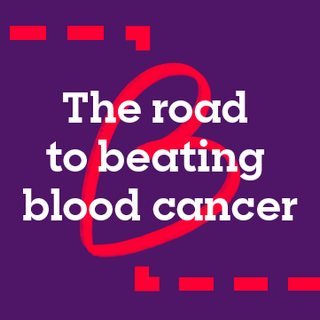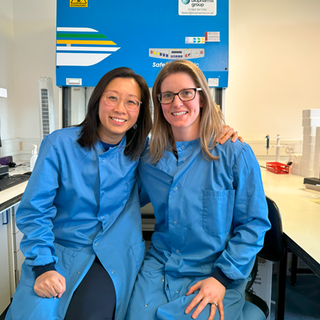New life-changing myeloma drug approved for fourth-line use on the NHS for those ‘exhausting’ options
United Kingdom
The drug teclistamab (Tecvayli), manufactured by Johnson & Johnson has been recommended by NICE to treat myeloma, a form of blood cancer, in England and Wales.
It is welcome news that more people in England and Wales with myeloma will be able to access teclistamab"
- Josh Hill, Blood Cancer UK
Myeloma affects the body’s white blood cells called plasma cells. While most people diagnosed with myeloma are men, and most are over 70, people can be much younger when they are diagnosed. While the condition can be treated, it cannot currently be cured.
I felt like I was exhausting my NHS treatment options, making me feel helpless, and I lost some of my natural enthusiasm."
- Guy Mainwaring, who is living with myeloma
Today (10th October), the drug, teclistamab has received a positive recommendation for fourth-line use on the NHS in England and Wales. Those who can receive it must have had at least 3 treatments for the disease and these must have included:
− an immunomodulatory drug and
− a proteasome inhibitor and
− an anti-CD38 antibody and whose cancer has progressed since their last treatment
NICE previously approved teclistamab for use on the NHS in July, with the condition that it would only be available to those patients who would have previously been offered pomalidomide plus dexamethasone. This approval was considered ‘draft guidance’.
Since then, Blood Cancer UK, and other charities, have called on NICE to reconsider their decision to restrict access to this specific subgroup of patients. It is welcome news that, as part of NICE’s final guidance, this novel treatment is now available to all with triple-class refractory myeloma.
I felt like a switch had been flicked, I got my life back and within a couple of weeks not months, I was starting to feel so much better."
- Guy Mainwaring
This decision follows the announcement in September by the drug regulator in Scotland, the SMC, to accept teclistamab for use on the NHS in the country.
Teclistamab is a bispecific monoclonal antibody and is administered by injection. The drug is designed to recognise and attach to the cancer cells and immune cells, so that the body’s immune system can destroy them.
Guy Mainwaring who is 63 years old from Middlewich in Cheshire started receiving teclistamab in January 2023 after going through several rounds of previous treatments.
The impact of Tecvayli
“I was diagnosed with myeloma after having a period of prolonged acute back pain. The current treatments are hard and my myeloma kept coming back. I felt like I was exhausting my NHS treatment options, making me feel helpless, and I lost some of my natural enthusiasm.
“Then my consultant managed to get me on teclistamab, it was a complete life-changer. I felt like a switch had been flicked, I got my life back and within a couple of weeks not months, I was starting to feel so much better. From not being able to exercise properly or walk very far I’m now back playing some of the best golf I’ve ever played. I can now comfortably walk around an 18-hole course and swing a golf club that was almost impossible just two years ago. It’s so good to meet up with friends, colleagues and family again, chat and be able to look forward to the future with optimism.”

What did our experts have to say about this decision
Josh Hill, Policy Officer from Blood Cancer UK said:
“Blood cancer is the fifth most common cancer in the UK and around 6,200 people develop myeloma every year. Because myeloma is currently incurable and will return following treatment, people with this blood cancer urgently need new treatments to be developed.
"While this new drug is only available to those who have already received three prior treatments, it is welcome news that more people in England and Wales with myeloma will be able to access teclistamab. We also welcome the decision by the drug regulators in Scotland to approve teclistamab for use within NHS Scotland, which means people across the UK have access to this innovative therapy. With advances in bispecific treatment approaches set to continue in coming years, it is our hope at Blood Cancer UK that more people will be able to benefit from this class of drugs going forward.”


